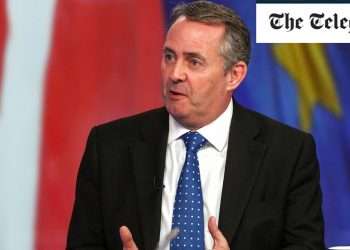
The Ukraine crisis marks the final failure of the post-Cold War international system, itself a tragically squandered opportunity. Back in the heady days of 1989-1991, the defeat of the USSR, one of the most monstrous empires of all time, was declared the “end of history” and the beginning of a new era of liberal, rational hegemony.
Yet as Francis Fukuyama, the author of that maligned phrase, predicted, the vacuum left by the death of communism was soon filled with equally sinister ideologies, not just in poorer nations but also in some of the world’s most powerful states.
The first great realisation that we weren’t all converging on eating Big Macs and peace and love came with 9/11, and the rise of Islamist extremism. This phenomenon was inaccurately viewed as marginal rebellion, something that with sufficient force and political education could be crushed. The great powers, who would decide the future of the world, were assumed to be converging on democratic capitalism.
Now we know this too was arrogant nonsense. The Chinese Communist Party concluded that it could grow rich without giving up power, in fact it could buy off rebellion and rival America’s strategic superiority. The threat that Russia now poses is borne of the opposite problem: it failed to develop a modern economy.
As to America and other parts of the West, they have fallen into self-loathing, prey to a toxic woke ideology that exaggerates their failings, downplays their successes and seeks to divide rather than unite.
Russia’s failure to embrace liberal, democratic capitalism, and America’s and Europe’s overly optimistic belief that Moscow’s flawed, corrupt post-communist economic model would deliver the sort of wealth and prosperity that goes hand in hand with real law-governed competitive free markets was an especially grievous error.
Russia’s gross domestic product per capita is about the same as Malaysia’s; its economy is smaller than Italy’s.
Dependent upon resource extraction and export, it has poured immense sums into the military and foreign adventures, but failed to diversify – stagnation and corruption have encouraged people to drop out of education or head abroad. The largest country in the world by geography now has a population size not much bigger than France and Germany combined, and lost more than a million people in 2021 alone, indicating serious failure to contain Covid.
The myth Vladimir Putin wants us to believe, and some deluded Westerners have swallowed, is that capitalism ravaged the former USSR and he saved it from the robbers, that what we see in his bullying of Ukraine is a great power restored to its Soviet-era authority.
The truth is that this is an authoritarian regime that fears for its own survival – and only calculates that it can get away with this thanks to America’s shockingly weak leadership and Europe’s decadent reliance on Russian energy imports.
In other words, we have failed to do democratic capitalism properly, too – failed to build the case for what we supposedly believe in, failed to invest in our alliances and failed to think of the long-term consequences of self-lacerating policy choices.
This is made clear today in an intervention by more than 30 Conservative MPs and peers declaring that the UK Government’s ban on fracking is foolish and dangerous. Here was a chance to increase energy supply and head off the price hikes now hitting consumers – as well as creating well-paid jobs, many in the Red Wall area.
The same could be said for nuclear and gas exploration: why did we allow one interpretation of environmentalism to turn our back on home-produced energy and make us reliant instead on an aggressive, hostile power for so much of our gas needs?
Whatever the outcome of the current crisis, what is now clear is that Moscow and Beijing are not going to become like us any time soon, that we need to accept the regrettable reality that we are entering another period of global philosophical divergence.
In the short-term, the West must impose the harshest possible sanctions on Russia if it invades Ukraine. We shall see if the Nato alliance system is up to the job of deterrence, though events in Hong Kong, Georgia, Belarus and Crimea indicate that it can do little to save those who are not within its orbit – that a new global, less Western alliance of free nations is needed.
Crucially, it must be economically resilient, so that when conflict does occur, we are able to isolate transgressors without destroying ourselves in the process.










